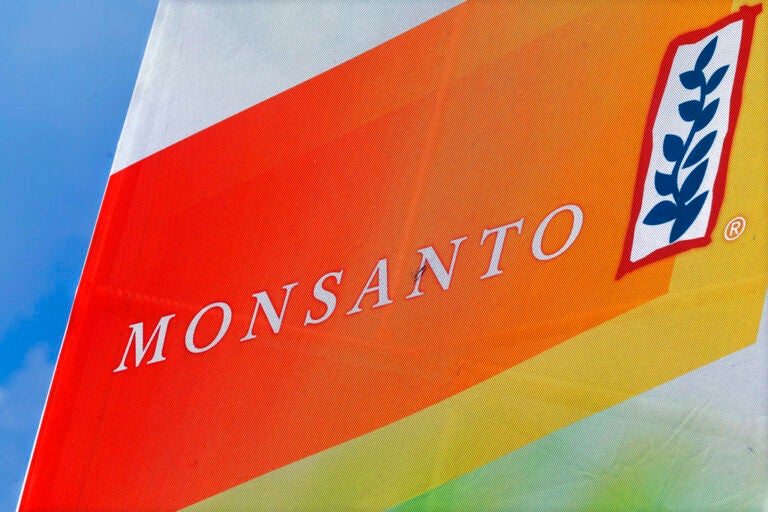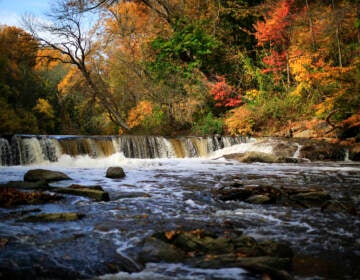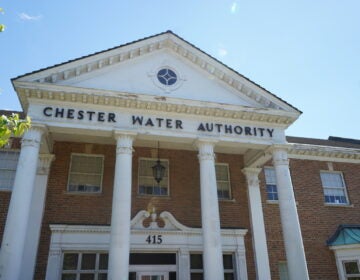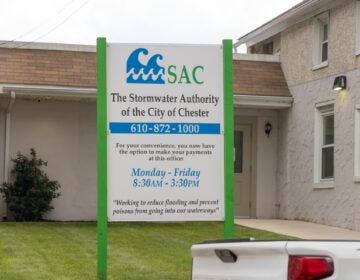Chemical companies to pay Pennsylvania $100 million for PCB contamination
PCBs were banned in 1979 for their potential dangers to human and environmental health.

FILE - This Aug. 31, 2015, file photo, shows the Monsanto logo on display at the Farm Progress Show in Decatur, Ill. Monsanto Co. reports earnings, Wednesday, Oct. 4, 2017. (AP Photo/Seth Perlman, File)
From Philly and the Pa. suburbs to South Jersey and Delaware, what would you like WHYY News to cover? Let us know!
Three chemical companies will pay Pennsylvania $100 million dollars to resolve claims that they contaminated the state’s waterways with polychlorinated biphenyls (PCBs).
The Monsanto Company, Solutia INC., and Pharmacia LLC manufactured products containing the toxic chemicals, which damaged waterways and other natural resources across Pennsylvania, according to the state.
“By securing this settlement, DEP is holding Monsanto accountable for what it did to Pennsylvania’s water and making sure that Monsanto is paying for the work the Commonwealth has done to keep its water clean,” said Pennsylvania Department of Environmental Protection Secretary Rich Negrin in a statement.
In a statement, a spokesperson for Monsanto said the settlement contains no admission of liability or wrongdoing by the company, and will fully resolve the claims. The company also reached a similar $80 million agreement with the state of Virginia.
“The Company never manufactured or disposed of PCBs in Pennsylvania or Virginia’s environments,” a statement reads.
PCBs, which have no taste or smell, are a group of man-made organic chemicals consisting of carbon, hydrogen, and chlorine atoms.
The chemicals were used to make various products, including electrical appliances such as TVs and refrigerators. An estimated 1.5 billion pounds of PCBs were made between the 1920s and 1979. Wastes from the manufacturing process were often placed in landfills and occasionally spilled into waterways.
PCBs were banned in 1979 for their potential dangers to human and environmental health. The toxic chemicals are linked to liver and respiratory problems among people who were highly exposed, such as workers.
PCBs can accumulate in plants, food crops, and fish, impacting people who consume them. Pregnant people who eat fish contaminated with PCBs may have children with cognitive impairment.
“For decades, PCB pollution has contaminated fish in our waterways, disrupted recreational opportunities, and impaired a valuable food source for millions of Pennsylvanians,” said Tim Schaeffer, executive director of the Pennsylvania Fish & Boat Commission. “On behalf of the anglers of Pennsylvania, we are proud to join our partner agencies in securing this settlement as we work to protect our cherished aquatic resources.”
The settlement money will recover the cost of PCB remediation. The state said $8 million will be used for projects in communities impacted by the spread of PCBs.

Get daily updates from WHYY News!
WHYY is your source for fact-based, in-depth journalism and information. As a nonprofit organization, we rely on financial support from readers like you. Please give today.






